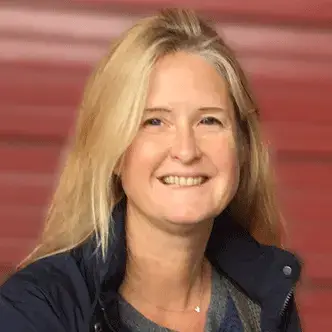The subject of plastic and the role that it plays in our lives is such a vast area with many complexities and seemingly very little real solution.
It’s a human made material that is embedded in our lifestyles and plays many, many roles – so many that we hardly notice it. Protective, durable, waterproof, flexible, adaptable… it is arguably the very fabric of modern society. And once it is manufactured…it’s here to stay. On our planet. For a very, very long time.
Where does plastic go when we are finished with it? Does all the plastic our local councils collect, actually get recycled? How can I reduce my plastic use? Should we all be trying to go plastic free?
Louise Boland is our non-exec Director here at 100Green and she recently decided to trial going plastic free for a month. By just being mindful and conscious of what products she was buying, Louise began to realise just how much plastic was in her life – and it was quite shocking.

But during this time, Louise also began to realise that there were things that can be done to reduce the amount of plastic she used. In fact, by dedicating a bit of time and research, it became apparent that a ‘normal’ life could be lead with very little plastic involved. As such, it has become a permanent lifestyle change for Louise.
And that’s why we were so keen to catch up with her – to ask what her top tips are for anyone wanting to start the journey to living plastic free.
Louise’s top three tips on starting the journey to a plastic free lifestyle
1. Check out this book by Lucy Siegle ‘Turning the Tide on Plastic’.
It’s a great starting point and helps you to understand what really happens to all the plastic we throw or recycle. By recognising the fundamental challenges we face as a society so dependent on plastic, it can help us to understand what we can each do as individuals, to really make a difference.
2. Do a bit of research and get prepped before you start.
There are a few basic items that you can purchase that will really help with everyday plastic free living.
Buy some small string bags > and take them shopping with you. You can use these to put loose veg and fruit in, instead of buying them wrapped in plastic.
Buy pyrex tubs with a lid >. The lid may be plastic but of course you will be using it over and over for many, many years.
There are so many different uses, but the easiest is to start buying from the deli counter and filling your own containers up. Many supermarkets have a deli – but if you can, try to support your local high street stores too.
3. Switch to local retailers
Many small grocery stores, butchers and fishmongers don’t wrap their products in plastic. And if they do, it is so much easier to start a conversation with them and encourage them to change.
Conversation is at the heart of real change. Louise is passionate about adding her voice to the conversation and encouraging retailers to do their bit. Because until the larger supermarkets and shops really start reducing the plastic they use, there will continue to be a price premium for plastic free produce. And this limits the ability for many to make the switch.
Looking for a couple of extra tips on home cleaning without the plastic?
Creating your cleaning products using household items like baking soda and vinegar is simple and effective. You can buy glass spray bottles that last so much longer than disposable cleaning containners.
Here are some easy recipes and instructions for various home-made cleaning products.
All-Purpose Cleaner:
Mix equal parts white vinegar and water in a spray bottle
Add the juice of one lemon
Shake well before each use
Window Cleaner
2 cups water
1/4 cup white vinegar
2 tablespoons lemon juice
1. Combine all ingredients in a spray bottle
2. Shake well to mix
3. Spray on windows and wipe with a lint-free cloth or paper towel
Hint: For stubborn spots, let the solution sit for a minute before wiping
Take our quiz!
Understanding the facts behind what can and can't be re-used and recycled is a key step towards reducing waste in our homes. Take our recycling quiz now to see if you know your 'rinse it first' symbol from your 'detatch the lid' symbol. (Hint - we failed miserably on the first attempt!)